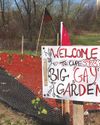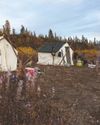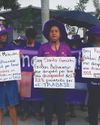As we stare down a climate crisis and a hard-right political wave, women activists are setting out to transform electoral politics in Canada. But are the parties ready for them?

On November 26, 2018, a packed elementary school gym in Edmonton, Alberta, is charged with excitement. It’s the NDP nomination meeting for the contested federal candidacy in Edmonton-Strathcona, where Paige Gorsak waits to hear the results of her campaign. The NDP riding association only planned for a maximum of 200 people, so hundreds of young mothers with strollers, seniors, and oilpatch workers stand impatiently at the back and line the school hallways. Gorsak, then a 26-year-old master’s student and co-founder of Climate Justice Edmonton who ran an openly socialist campaign, makes her speech to a room full of people who are genuinely excited about electoral politics – many for the first time in their lives. In her five-week campaign, her team raised $5,000, gained over 100 volunteers, and boosted the NDP membership by over 25 per cent. Slowly, the NDP members cast their ballots. The vote is in: Gorsak loses by only 19 votes.
I watched Gorsak’s campaign explode on social media, and saw friends from the campaign fight for a woman who defies the centrist standard of electoral politics. I had recently begun volunteering with the Green Party in my home province of Prince Edward Island and had been struggling with the classic questions any young leftist must face when considering electoral politics. Can we change systems from within? Can reform be meaningful or is it a distraction from revolution? Is voting as harm reduction strategic or cynical?
Six months after her landmark campaign, I interviewed Gorsak about why she decided to get involved in electoral politics. Like me, Gorsak had grappled with the usefulness of electoral politics and the ethics of working within colonial governance systems.
Denne historien er fra July/August 2019-utgaven av Briarpatch.
Start din 7-dagers gratis prøveperiode på Magzter GOLD for å få tilgang til tusenvis av utvalgte premiumhistorier og 9000+ magasiner og aviser.
Allerede abonnent ? Logg på
Denne historien er fra July/August 2019-utgaven av Briarpatch.
Start din 7-dagers gratis prøveperiode på Magzter GOLD for å få tilgang til tusenvis av utvalgte premiumhistorier og 9000+ magasiner og aviser.
Allerede abonnent? Logg på

PLATFORMS FOR PEOPLE, NOT PROFIT
Digital platforms boast that they’ve “democratized” cultural production. But what would truly democratic platforms look like in Canada?

ORGANIZING THROUGH LOSS IN THE HEART OF OIL COUNTRY
The story of climate justice organizing in Alberta, at the heart of the tarsands, is the story of a group of young activists learning what it means to lose, and keep on fighting

GROWING THE LABOUR MOVEMENT
How unions are using community gardens to engage members, nourish communities, and help strikers weather the picket line

A NEW ERA FOR OLD CROW
In the Yukon’s northernmost community, the Vuntut Gwitchin First Nation is reckoning with how to preserve their land and culture, amid a warming climate and an influx of tourists

“At Least Hookers Get Wages”
The risky business of sex work in the gig economy

The Literal – And Literary – Futures We Build
Briarpatch editor Saima Desai talks to two judges of our Writing in the Margins contest about Idle No More and MMIWG, ethical kinship, writing queer sex, and their forthcoming work.

The Cost Of A T-Shirt
In Honduras, women maquila workers are fighting back against the multinational garment companies that they say are endangering their health and safety.

Milking Prison Labour
Canada’s prison farms are being reopened. But when prisoners will be paid pennies a day, and the fruits of their labour will likely be exported for profit, there’s little to celebrate.

Bringing Back The Beat
In mainstream media, labour journalism has been replaced by financial reporting and business sections. But journalism students are raising the labour beat from the grave.

There's No Journalism On A Dead Planet
Corporate media owners are killing local newspapers – which is making it impossible for everyday people to understand the on-the-ground impacts of the climate crisis